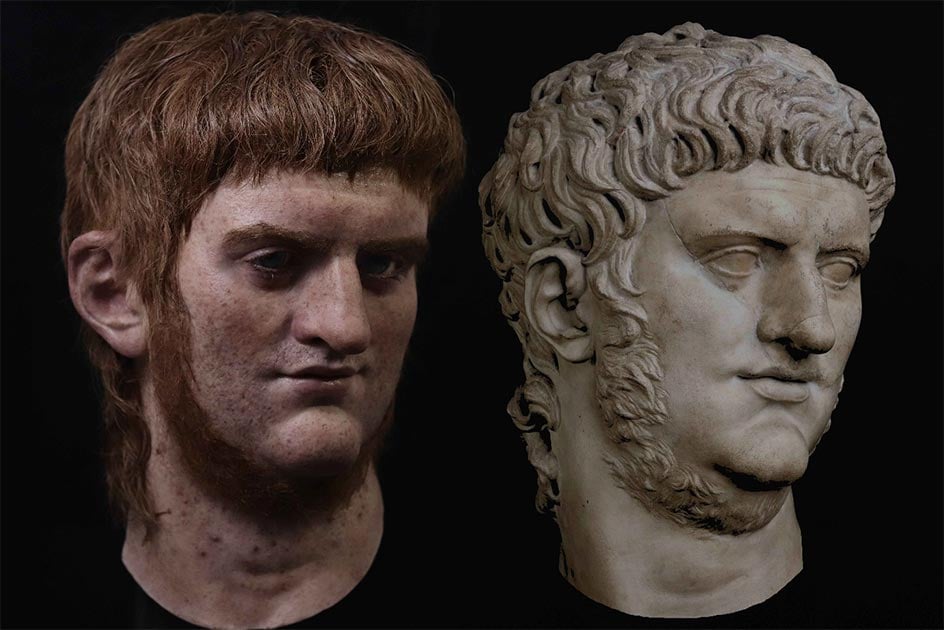Nero, full name Nero Claudius Caesar Augustus Germanicus, was one of ancient Rome's most notorious and infamous emperors, whose reign was marked by extravagance, tyranny, and scandal. Nero was born on December 15, 37 AD, in Antium (modern-day Anzio, Italy), Nero was the son of Gnaeus Domitius Ahenobarbus and Agrippina the Younger, the great-grandson of Emperor Augustus, and the nephew of Emperor Caligula.
Early Life and Education
From an early age, Nero showed a keen interest in the arts, particularly music and poetry. He received a thorough education in rhetoric, philosophy, and literature, under the guidance of prominent tutors, including the philosopher Seneca. However, his upbringing was fraught with family turmoil and political intrigue, as he navigated the treacherous dynamics of the Julio-Claudian dynasty.
Rise to Power
Nero's ascent to the imperial throne was orchestrated by his mother, Agrippina, who married Emperor Claudius and secured the adoption of Nero as his heir. In 54 AD, following Claudius's death, Nero was proclaimed emperor at the age of 17, becoming the youngest emperor in Roman history at that time. Initially, Nero's rule was characterized by a degree of restraint and moderation, with his early years marked by a focus on cultural pursuits and public welfare.
Nero's Reign: A Reign of Tyranny and Excess
However, as Nero matured, his behavior became increasingly erratic and despotic. He indulged in extravagant displays of wealth and power, constructing lavish palaces and organizing lavish spectacles for the entertainment of the Roman populace. Nero's reign was also marked by political purges, persecution of perceived enemies, and the suppression of dissent, leading to growing discontent among the Roman elite and populace alike.
The Great Fire of Rome and Persecution of Christians
One of the most infamous events of Nero's reign was the Great Fire of Rome in 64 AD, which devastated much of the city. While Nero famously played the lyre and recited poetry during the fire, rumors circulated that he had deliberately started the blaze to clear space for his grandiose building projects. In the aftermath of the fire, Nero scapegoated the Christian community, initiating a brutal campaign of persecution that would stain his legacy for centuries to come.
Nero's Downfall and Death
Nero's reign came to a tumultuous end in 68 AD, as revolts and rebellions erupted across the empire. Facing the threat of deposition and execution, Nero fled Rome and ultimately took his own life on June 9, 68 AD, bringing an ignominious end to his reign as emperor. His death marked the end of the Julio-Claudian dynasty and ushered in a period of civil war and political upheaval known as the Year of the Four Emperors.
Legacy and Impact
Despite his ignoble end, Nero's legacy has endured through the ages, leaving an indelible mark on the collective memory of Western civilization. He is remembered as a tyrant, a megalomaniac, and a symbol of unchecked power and excess. Yet, Nero's reign also witnessed significant cultural achievements, including the construction of the Domus Aurea (Golden House) and the sponsorship of the arts. As we reflect on Nero's life and reign, we are reminded of the complexities of power and the enduring allure of one of ancient Rome's most infamous rulers.




